As we approach International Mother’s Day 2024, a day dedicated to celebrating the love and contributions of mothers, it is important to acknowledge that there are many toxic mother-daughter relationships out there, and that not all such relationships are happy and healthy.
If all around people are gushing about the perfect gifts to buy for their moms and all you can think about is “My mother is toxic!”, this blog is for you!
Our mothers are supposed to be our safe haven. Girl children especially identify more with their mothers and look up to them as their role models.
While some of us luck out in this department, others end up with toxic mother-daughter relationships.
Related: Why Your Narcissistic Mother Hates Your Body
For a girl child, the bonding with her mother is the crux of her personality development and she will tend to form and evaluate all her future adult relationships based on the barometer of the mother-daughter relationship she had during her formative years.
Research indicates that the influence of a mother is quite strong when it comes to the mental health of a daughter.
In this article, we will explore eight common dysfunctional patterns that can arise in such relationships and provide insights on recognizing and healing from them, particularly for those who may not be experiencing a happy Mother’s Day.
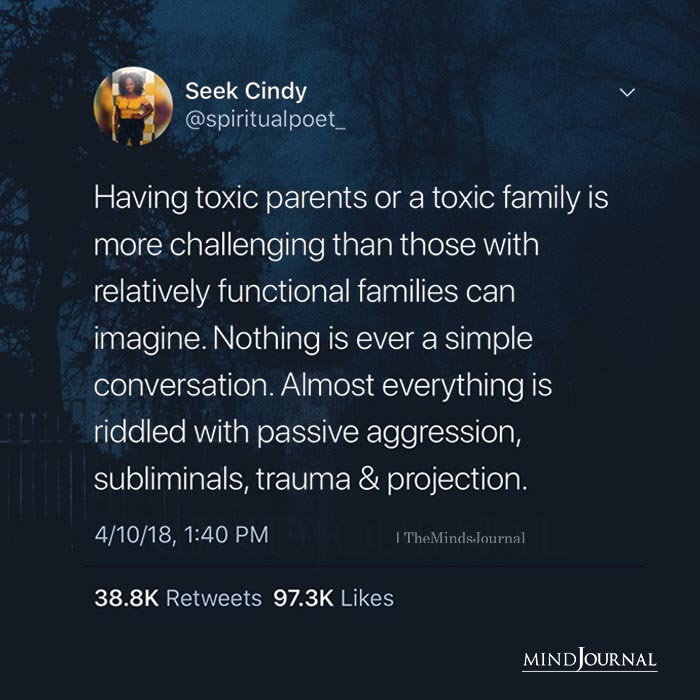
What Are Toxic Mother-Daughter Relationships?
Unhealthy mother-daughter relationships essentially are not favorable for the growth and development of the daughter’s emotional and physical health.
The presence of a mother wound can manifest in dysfunctional parent-child relationships where the daughter does not feel safe or comforted in the presence of her mother.
She cannot depend on the mother for guidance, advice, or the fulfillment of her basic needs. In toxic mother-daughter relationships, the daughter does not feel nurtured by the mother.
Let’s look at some of the signs of a bad mother-daughter relationship.
Although all mothers may exhibit one or more of the following characteristics once or twice in her lifetime, a toxic mother will continuously show two or more of the following traits:
- Blaming or guilt-tripping
- Invalidating the daughter’s emotions or lack of empathy toward the daughter’s needs
- Criticism that is not constructive
- Exploitation
- Abuse
- Neglect
- Ignoring boundaries
- Passive aggression
- Controlling
- Humiliation
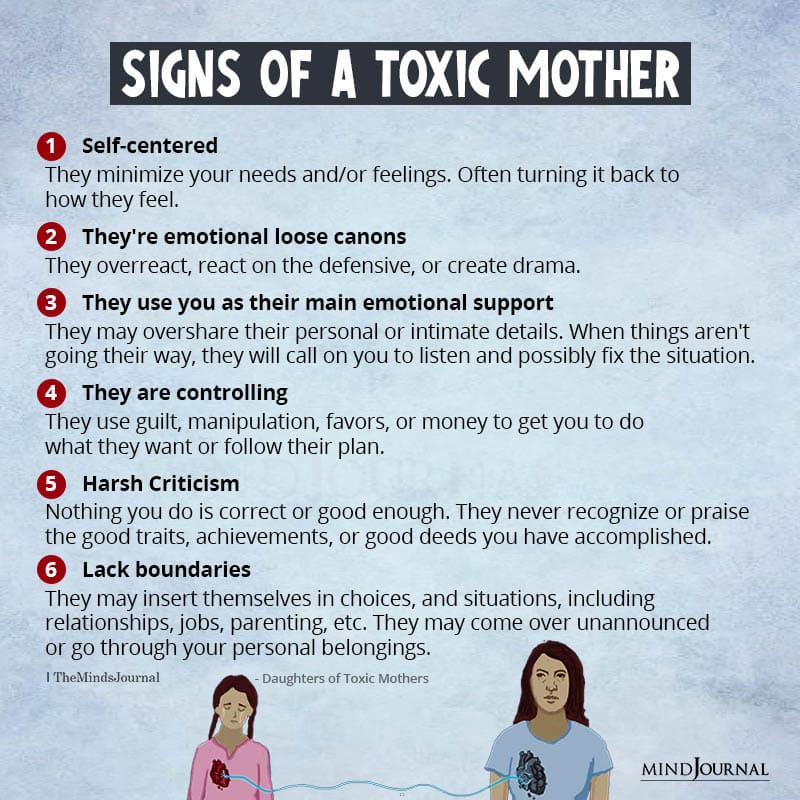
What Makes A Mom and Daughter Relationship Toxic?
There are several views on what contributes to mother-daughter relationship issues. Personality traits and changing hormones are often blamed by mothers and daughters who find themselves entangled in such dysfunctional relationships.
However, a more scientific approach tells us that socio-cultural and cross-generational influences, including gender bias, patriarchy, sexism, etc., lead to unrealized life goals in women.
Women who are not satisfied with their lives tend to sow the seeds of self-loathing and resentment in their daughters.
What Are The Different Types Of Toxic Mother-Daughter Relationships?
It is imperative to know and identify the toxic patterns of an unhealthy mother-daughter relationship, in order to cope with the situation better.
The following dysfunctional Family tendencies are commonly found to dominate toxic mother-daughter relationships:
1. Enmeshed: Codependent mother and daughter
In enmeshed mother-daughter relationships, the mother forges an all-consuming bond with her daughter. They both share everything with each other and there’s no healthy boundary between the two.
While this may seem like a happy relationship, once the girl grows up and demands her personal space, problems start brewing up. The mother refuses to withhold her grip on her daughter’s life and continues to interfere in the latter’s personal choices.
Daughters seldom get disciplined by such mothers while growing up. The negative effects of maternal enmeshment have also been established by researchers.
Related The Path To Healing: How Adult Daughters Of Narcissistic Mothers Can Heal Themselves
2. Narcissistically Controlling
A narcissistic mother sees her daughter as nothing more than an extension of her. She sets unrealistic expectations and punishes her daughter when she fails to meet them.
Such toxic mothers perceive their daughter’s every achievement and failure as a reflection of her.
She is severely critical of her daughter and instills poor self-esteem in the daughter’s mind. According to research, narcissistic parenting wreaks havoc on the well-being of a child.
3. Rivalry
This is when a mother sees her daughter as a rival. She feels threatened by the daughter’s looks or achievements and may try to sabotage her life.
She often draws parallels between her and her daughter’s life decisions and feels inadequate compared to the daughter.
Daughters in such toxic mother-daughter relationships, grow up feeling guilty or ashamed about their accomplishments, and this damages their sense of self.
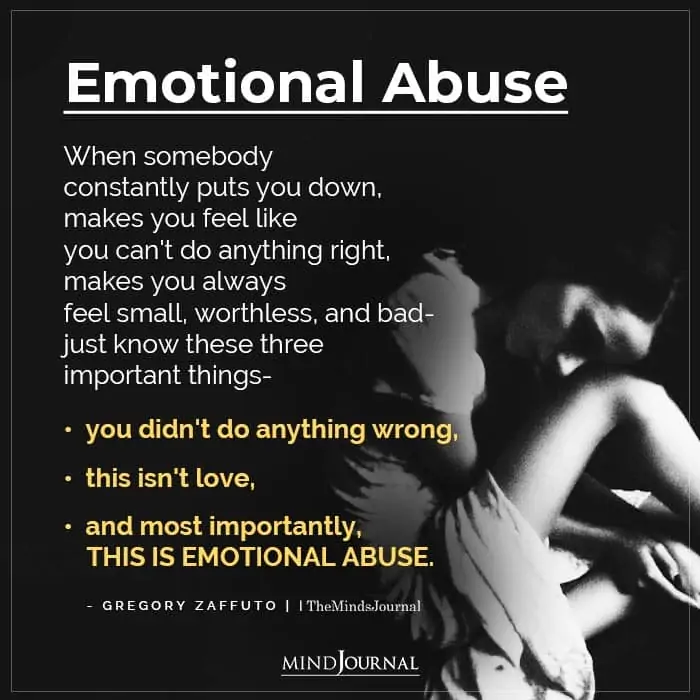
4. Role Reversal
When a mother flips the script and instead of providing care to her daughter becomes the recipient, it gives rise to a very unhealthy mother-daughter relationship dynamic.
It is often found that the mother is an addict or mentally incapable of taking care of herself, let alone her child.
Such daughters, from a very young age, start to look after their mothers and pay little attention to studies or other self-development tasks. Needless to say, this adversely affects the life of the daughter in more ways than one.
5. Abandonment
Sometimes a toxic mother is emotionally and/or physically unavailable to her daughter. When physically present, she may completely ignore the presence of the daughter and pay no attention to her needs.
The mother might also spend most of her time at work or with her friends. In other cases, such toxic mother-daughter relationships end in total abandonment of the daughter.
The mother might take off, leaving her daughter with the other parent or someone else, with serious consequences for the physical safety and mental health of the daughter.
Related: What Is Triangulation In Emotional Abuse (With Examples)
6. Dismissal
Daughters depend on their mothers as the primary source of acceptance and validation. A child will want her mother to acknowledge her emotional and physical needs. But a toxic mother will fail to see beyond her own insecurities and necessities.
Such a mother will not accept her daughter’s authentic personality and will dismiss every request or complaint her daughter might put forth in front of her. This gross dismissal attitude is disastrous for the daughter.
7. Combative
A combative mother-daughter relationship can be physical or emotional in nature. Nonetheless, the fights and arguments, whether physical or not, scar them both.
Such toxic mother-daughter relationships witness the mother resisting every decision of her daughter.
The duo will clash over every minor incident, ranging from squabbles to physical abuse. This gives birth to a very unhealthy living situation for both the mother and daughter.
8. Unpredictable
Sometimes the mother is unpredictable or unreliable in her parenting style. The daughter has no idea which side of her mother will surface in a given situation.
Generally, in public or in the company of others, the toxic mother will appear to be nurturing and supportive; whereas in private she will be abusive or critical.
This unpredictable or unreliable nature of mothering sends the daughter into an emotional tailspin.
Effects Of Toxic Mother-Daughter Relationships On The Daughter
- High or unrealistic self-expectations.
- Self-criticism.
- Poor self-respect, self-confidence, and self-esteem, with a lack of self-compassion.
- People-pleasing nature.
- Anger and projecting frustrations onto others.
- Dependency on other people or objects for our well-being.
- Downplaying our achievements out of shame or guilt.
Related: The Narcissist’s Family: The Roles Cast by the Narcissist
How To Cope With The Effects Of Toxic Mother-Daughter Relationships?
Research suggests the mental health of mothers has significant effects on their children. Therefore, to have a functional life, you need to heal the toxic maternal behavioral patterns.
1. Have a heart-to-heart
Have an open and honest conversation with your mother and communicate how she hurt your feelings with her toxic behavior, while you were growing up.
Listen to her part of the story, make her understand your point of view, and resolve your issues if possible.
2. Set boundaries
It was no doubt impossible for you to maintain boundaries when you were a child, but as a grown-up, you can set strict boundaries and prohibit your mother from influencing your life with her unhealthy behaviors.
3. Make changes
Identify which areas of your life are getting affected by your toxic mother-daughter relationship dynamics and which toxic traits you have internalized. Take ownership of your life and change your self-sabotaging tendencies.
4. Cut the cord
Realize when the situation is unsalvageable and cut ties with your toxic mother completely.
You have all the right to remove a toxic connection and your safety and mental health should come first. When the relationship cannot be healed, distancing yourself is the only solution.
Together, A Force To Reckon With
Strong and positive mother-daughter relationships has the potential to counter cross-generational sexism and gender bias.
A healthy mother-daughter relationship can improve the lives of women in society and set a great example of self-dependence and self-worth.
As a mother, you need to resolve your issues in order to ensure that these do not get carried on to the next generation.
However, as a daughter, if you cannot heal the dysfunctional mother-daughter relationship, it is best to cut the cord and set yourself free.
Related Personal Boundaries: 9 Core Boundaries To Live By
On this International Mother’s Day, it is important to recognize that not all mother-daughter relationships are happy and healthy.
But by recognizing the signs of toxic relationships and working towards healing, we can strive to nurture healthier bonds and honor the complexities of this unique connection.
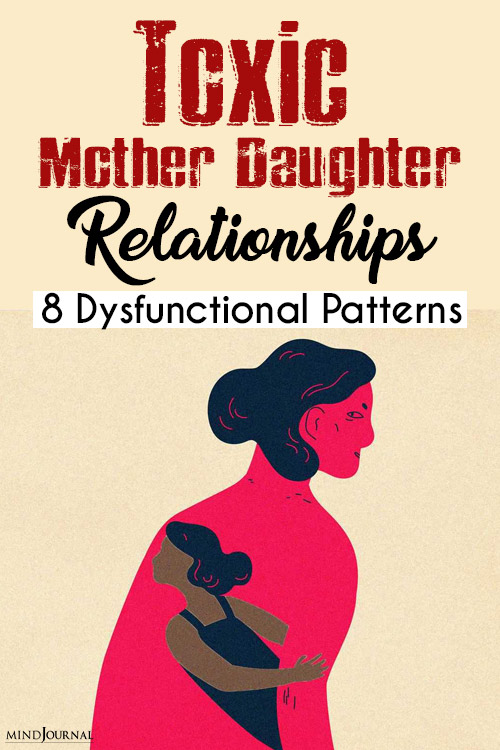
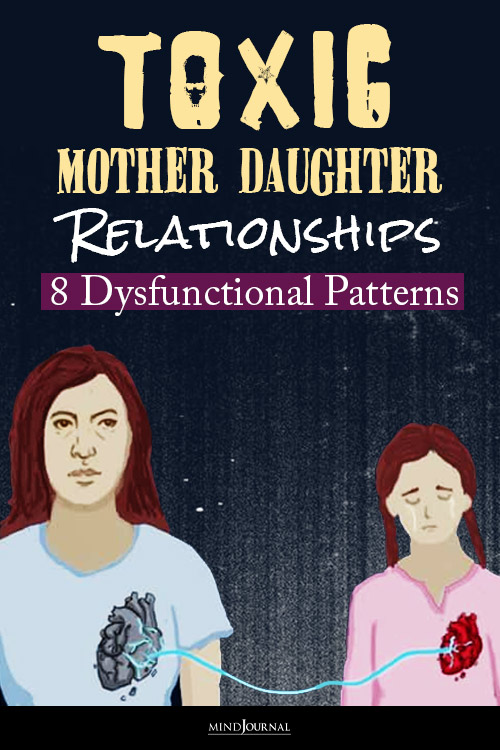
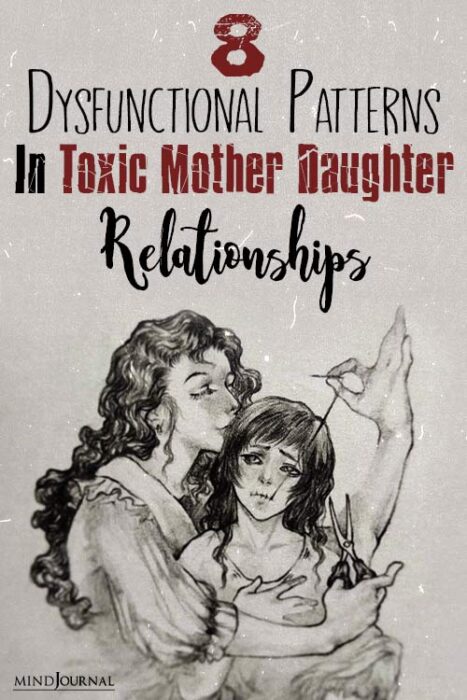
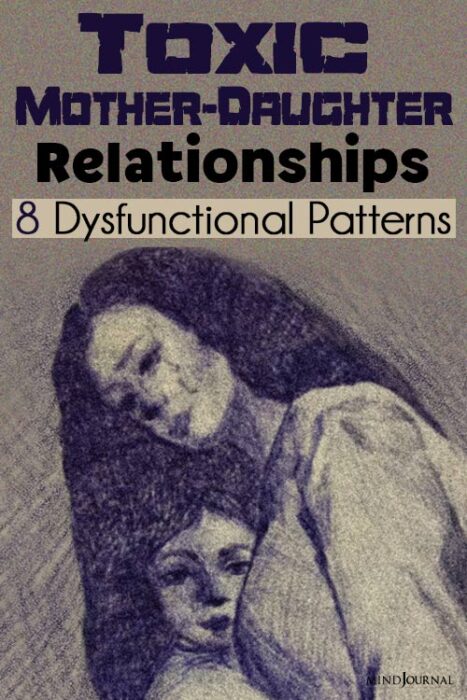
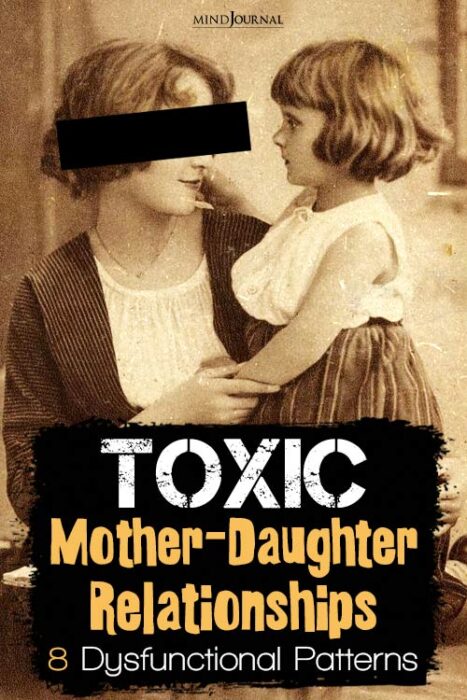
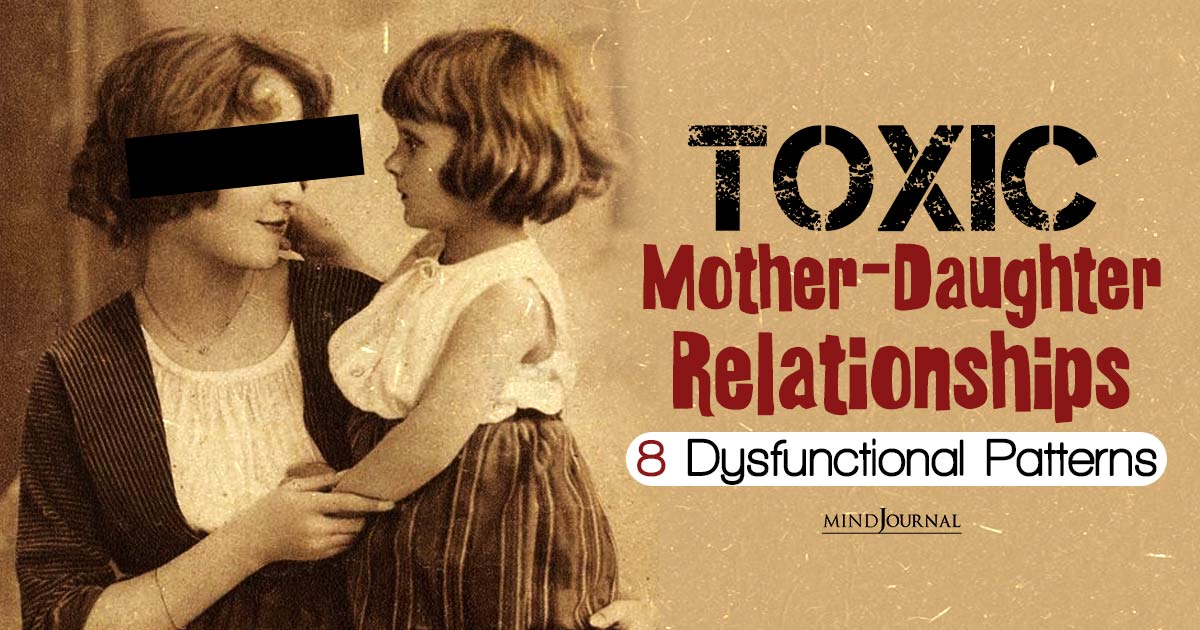






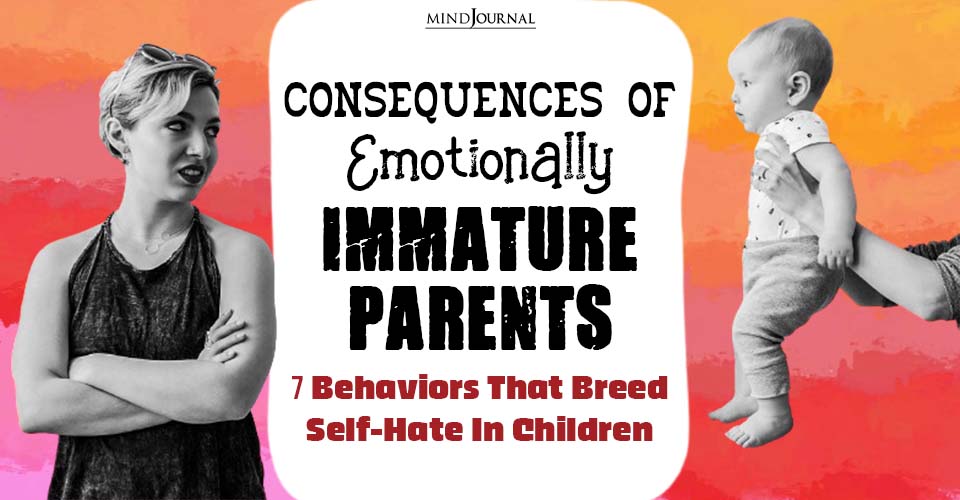
Leave a Reply
You must be logged in to post a comment.